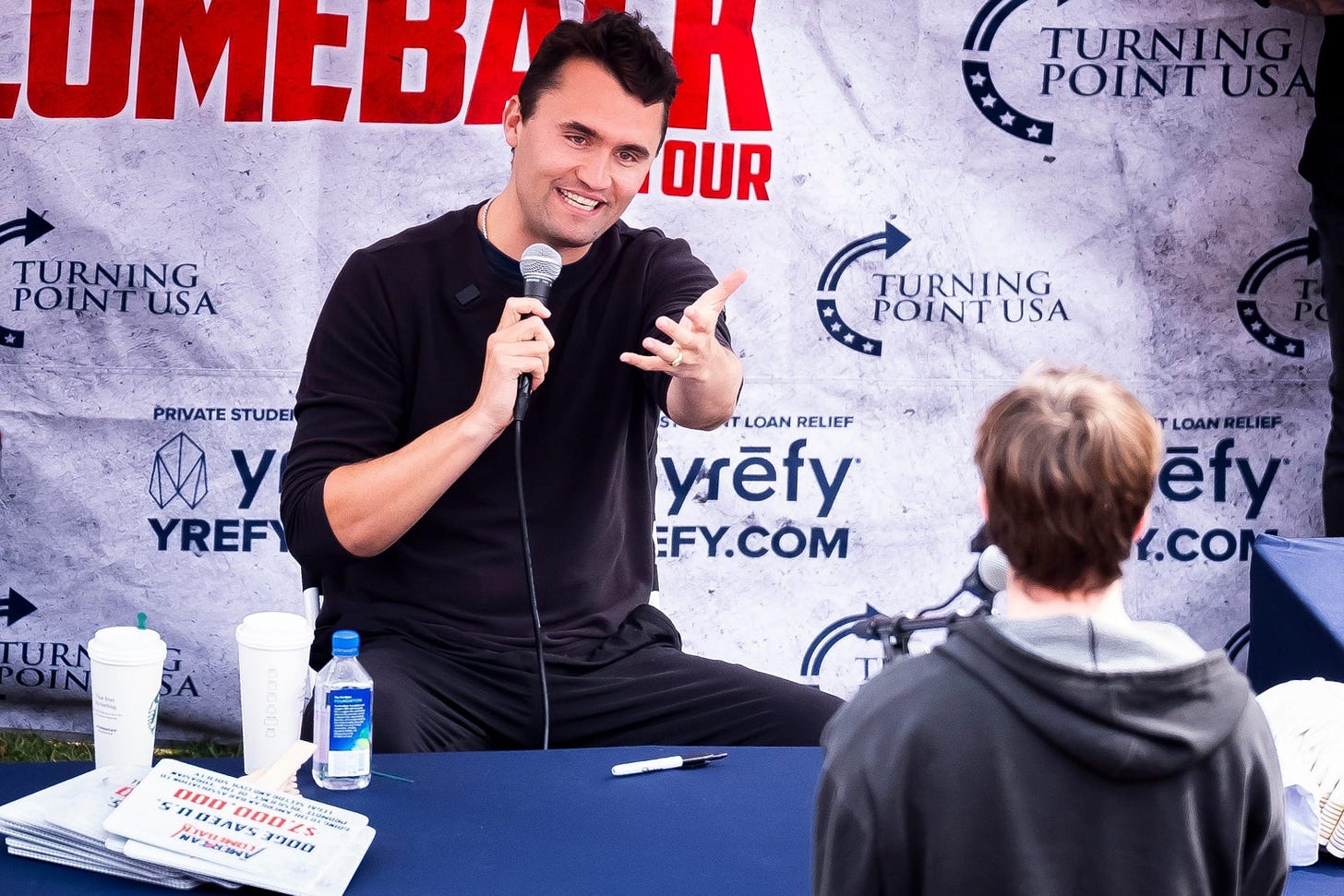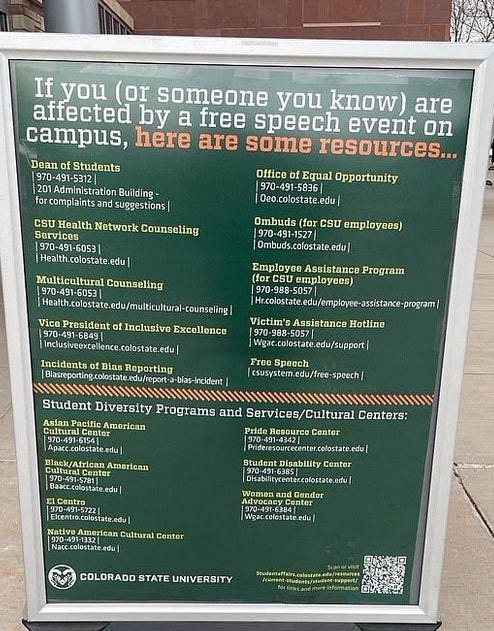We still don’t know who assassinated Charlie Kirk.
But we know who’s celebrating his murder—a generation of young people who’ve been raised to believe that speech is violence.
Count me ambivalent about this issue. Because, on the one hand, I suspect a certain sort of speech is, in all likelihood, a contributor to Charlie’s death. For years, elements of the left and of what you might call anarchic libertarians have declared that statements with which they disagree amount to violence.
Here, for example, is a statement by the Lemkin Institute that states Gender Critical Ideology, which is opposed to transgender ideology, is genocidal. When you accuse someone of genocide, you’re tacitly justifying violence against them because, in most people’s eyes, violence in the name of stopping genocide is acceptable. Likewise, of course, when you call someone a nazi, a fascist, a dictator.
“Punch a Nazi” was a meme I saw a colleague on Facebook advancing some years ago. Because, of course, who wouldn’t want to punch a nazi? I would. If he were a real nazi. The problem is that the term has been applied to everyone from David Duke to George Bush to Ben Shapiro to Charlie Kirk.
So “punch a nazi” eventually transmogrifies into “shoot a conservative.”
So, on the one hand, I see that speech can provoke violence.
But I know, on the other hand, that terms like “hate speech” can quickly be inflated to label any form of speech with which we disagree to try to shut down such speech by labeling it “violent.”
Five years ago, I was at a meeting about hate speech in Chattanooga. The city was hoping to regulate it somehow. I sat next to a woman who argued something to the effect that a person who says, “women, as a group, might not make as good firefighters as men,” is hate speech.
Now, you might call out such a statement as ignorant or prejudicial, but to suggest it is a form of verbal violence is, well, taking an axe to language, is itself metaphorically violent. The key here is to understand metaphor, which, frankly, is beyond many people.
So I’m hesitant to attempt any regulation of speech, though I certainly advocate using speech to combat speech. When people say hateful things, other people should correct them, should call it out.
But we don’t need to become Britain and start locking people up for mean tweets. We must not become that. And Britain ought to take a step back as well.
What we do need to do, however, is start cracking down on actual violence.
The assassination of Charlie Kirk at Utah Valley University yesterday was a horrific escalation, but perhaps a predictable one, of the campus violence that has festered at least since 2015, when Milo Yiannopoulos’ “Dangerous Faggot Tour” sparked violent protests and disruptions at Berkeley and elsewhere.
Yes, Milo eventually turned out to be an antisemitic grifter, but at the time, he was simply expressing mainstream conservative views in provocative language. Yes, he was trolling, but he was trolling non-violently, and the response was violence that was largely allowed to continue.
Thus, in 2017, when Ben Shapiro spoke at Berkeley, the university had to lay out something like $600,000 for security. I suppose you could say that was evidence they were not tolerating violence, but the reason it cost so much was that they had allowed two years of violent protests to build momentum. The same year, Professor Charles Murray was driven off Middlebury Campus and attacked after being invited by a conservative group.
In 2017, Gavin McInnes1 was pepper-sprayed and prevented from speaking to College Republicans at NYU. Ann Coulter’s speech at Berkeley in 2017 was canceled due to violent protests. Heather Mac Donald was prevented from speaking at Claremont McKenna College the same year.
In 2019, Michael Knowles was assaulted when he showed up on campus to address Young Americans for Freedom.
More recently, a conservative speech at UC Davis was canceled after violent protests.
Campus administrations have often been slow to punish offenders, reluctant to support the rights of student organizations to sponsor speakers of their choice. The collective professoriate has either been largely silent or has supported attacks on free speech. Offices of Student Affairs have been supportive of hyperbolic reactions to controversial speakers as seen here:
The result has been a climate of tolerance for real violence against supposedly violent free speech.
According to a NYT editorial yesterday
Thirty-four percent of college students recently said they supported using violence in some circumstances to stop a campus speech, according to a poll from the Foundation for Individual Rights and Expression published a day before the Kirk shooting. Since 2021, that share has risen from 24 percent, which was already unacceptably high. Surveys of older adults are similarly alarming.2
We have to stop treating speech as violence and start using speech to condemn actual violence. We have to educate our young (and old) to the old notion of “I Disapprove of What You Say, But I Will Defend to the Death Your Right to Say It.”
That’s what Charlie Kirk did.
Prove me wrong.
Yes, I know, he’s the founder of Proud Boys, an actual group that, itself, embraces violent tactics. But he was coming to give a speech, not throw punches.
Someone on Notes called my attention to this quote, and I’d credit them for it if Substack made it easier to retrace my steps. . .




The despicable comments on some on the left making fun of the murder of Charlie Kirk show how far we have sunk as a nation!
I went to see Jim Watt, a very controversial member of the Reagan administration, in 1986 or 87 at USC. He had some challenging questions from the audience, but ti was fully civil. Nothing like this insanity today. I am not remotely a supporter of most of the conservatives you list above (other than Ben Shapiro), but this is an insane situation. Let these people speak. If people need to protest, fine. But chasing them off campus, threatening violence to them and the students who want to hear them, is against everything America stands for.